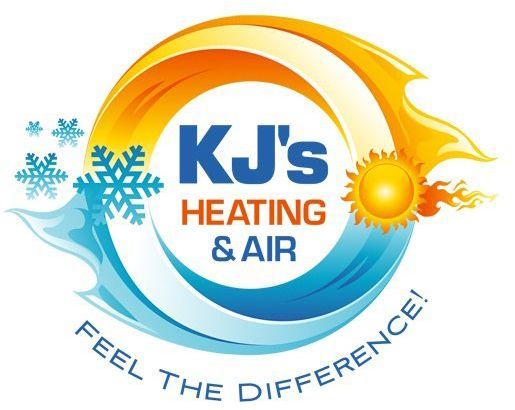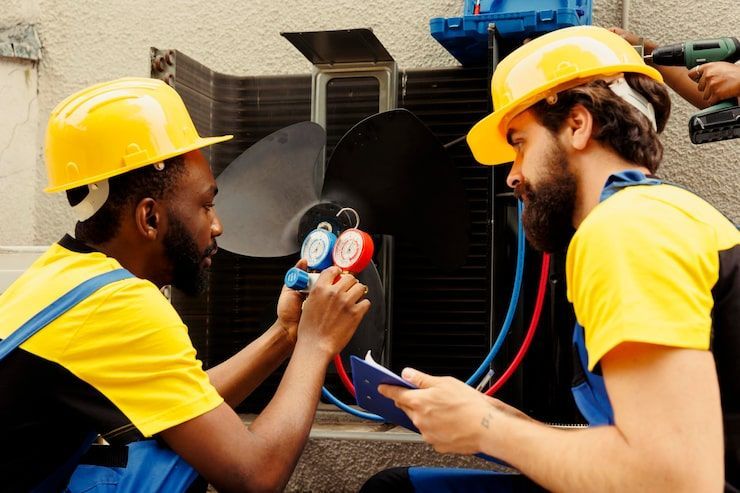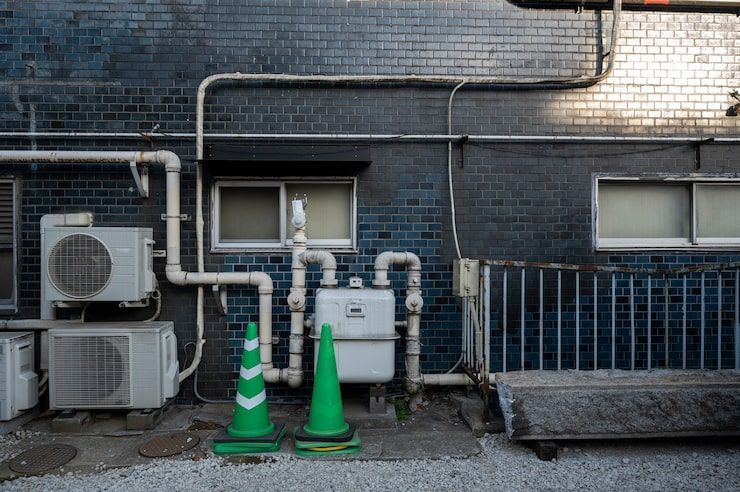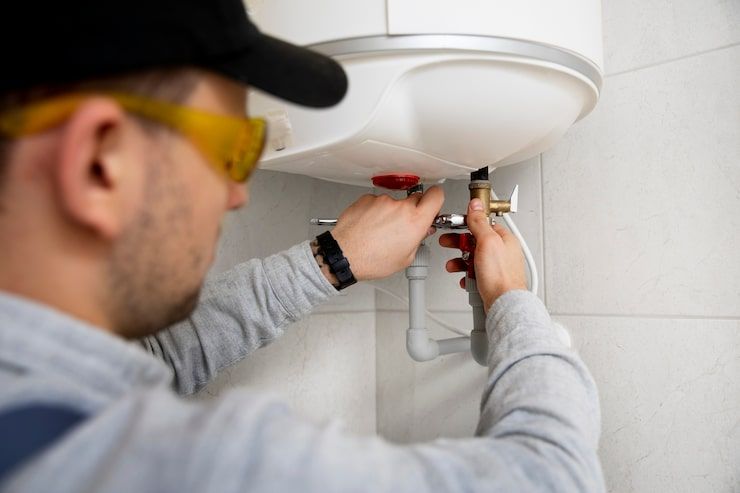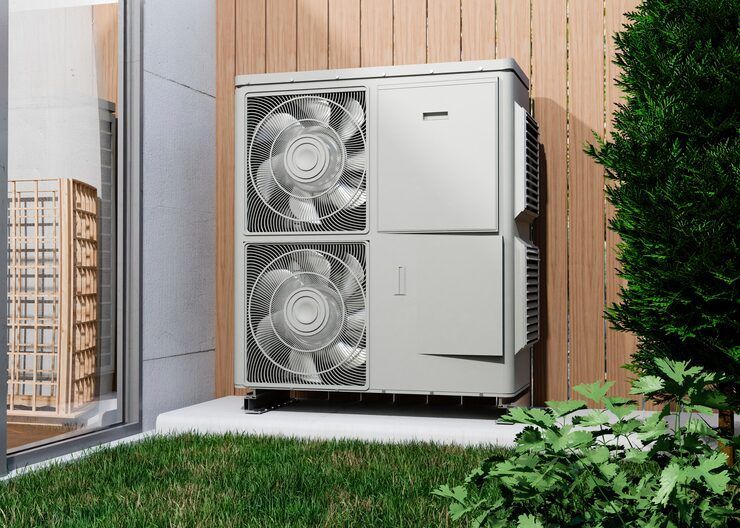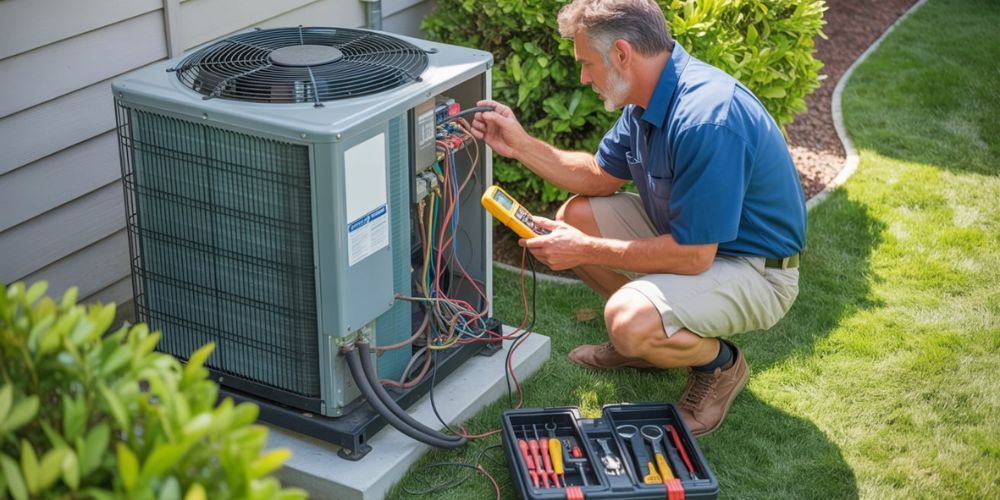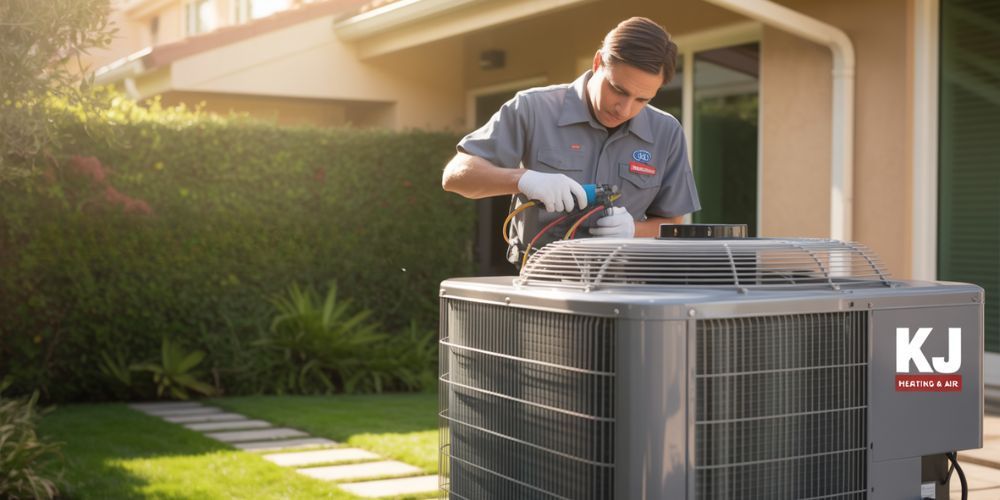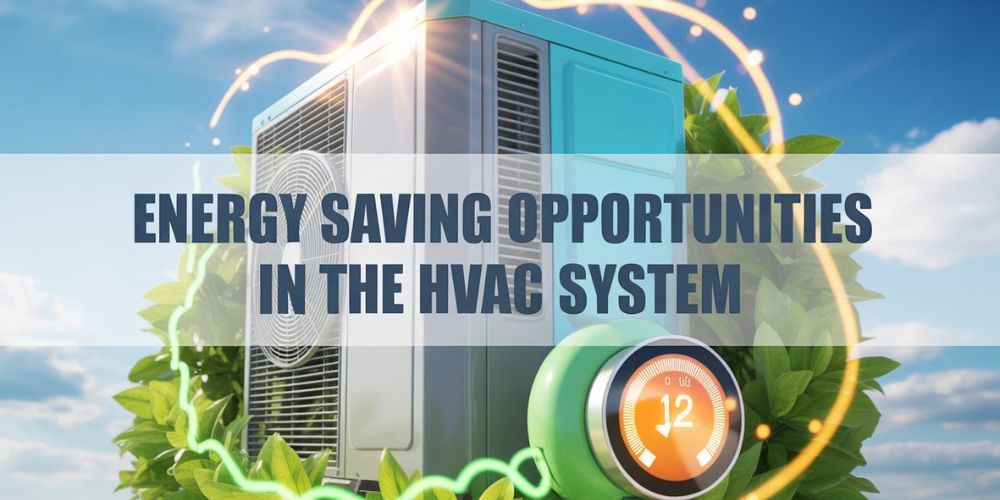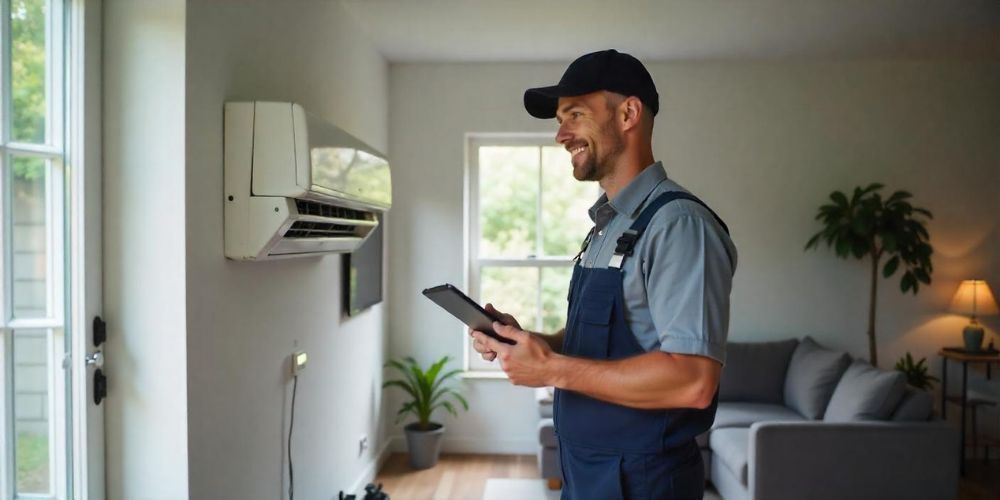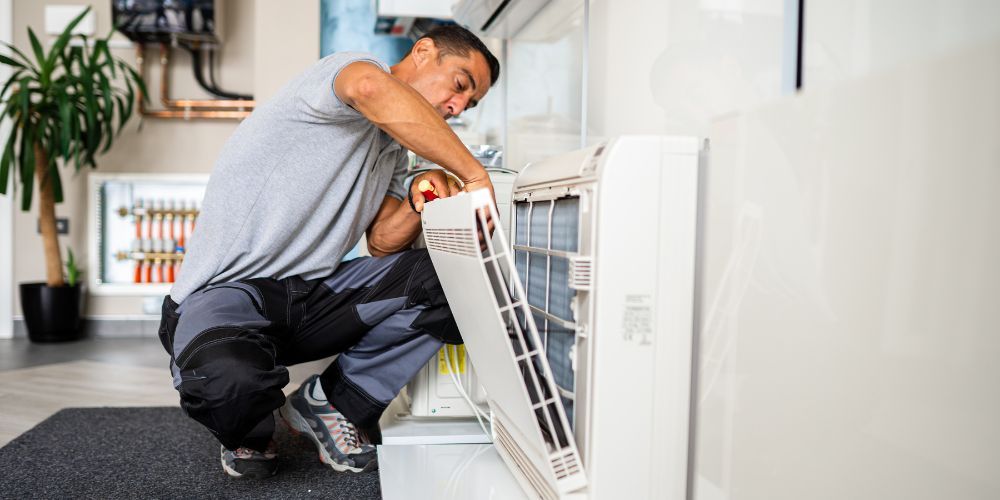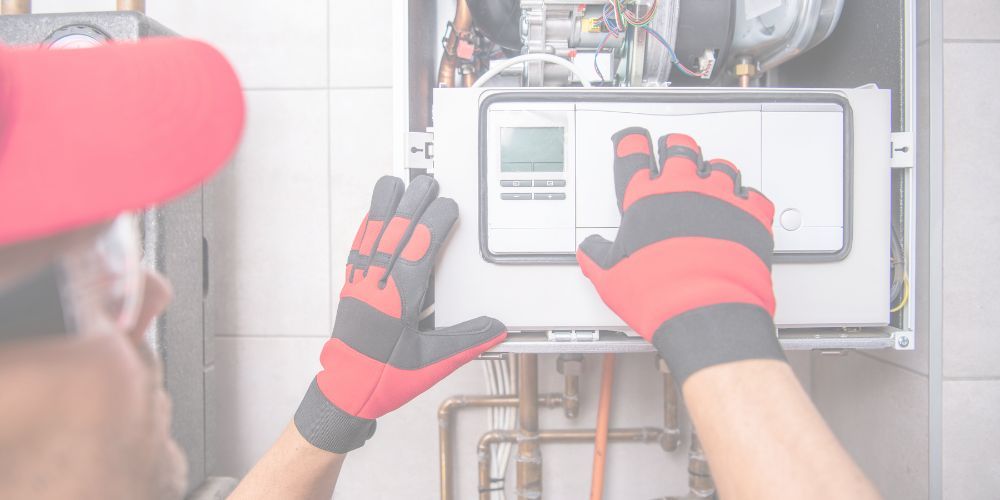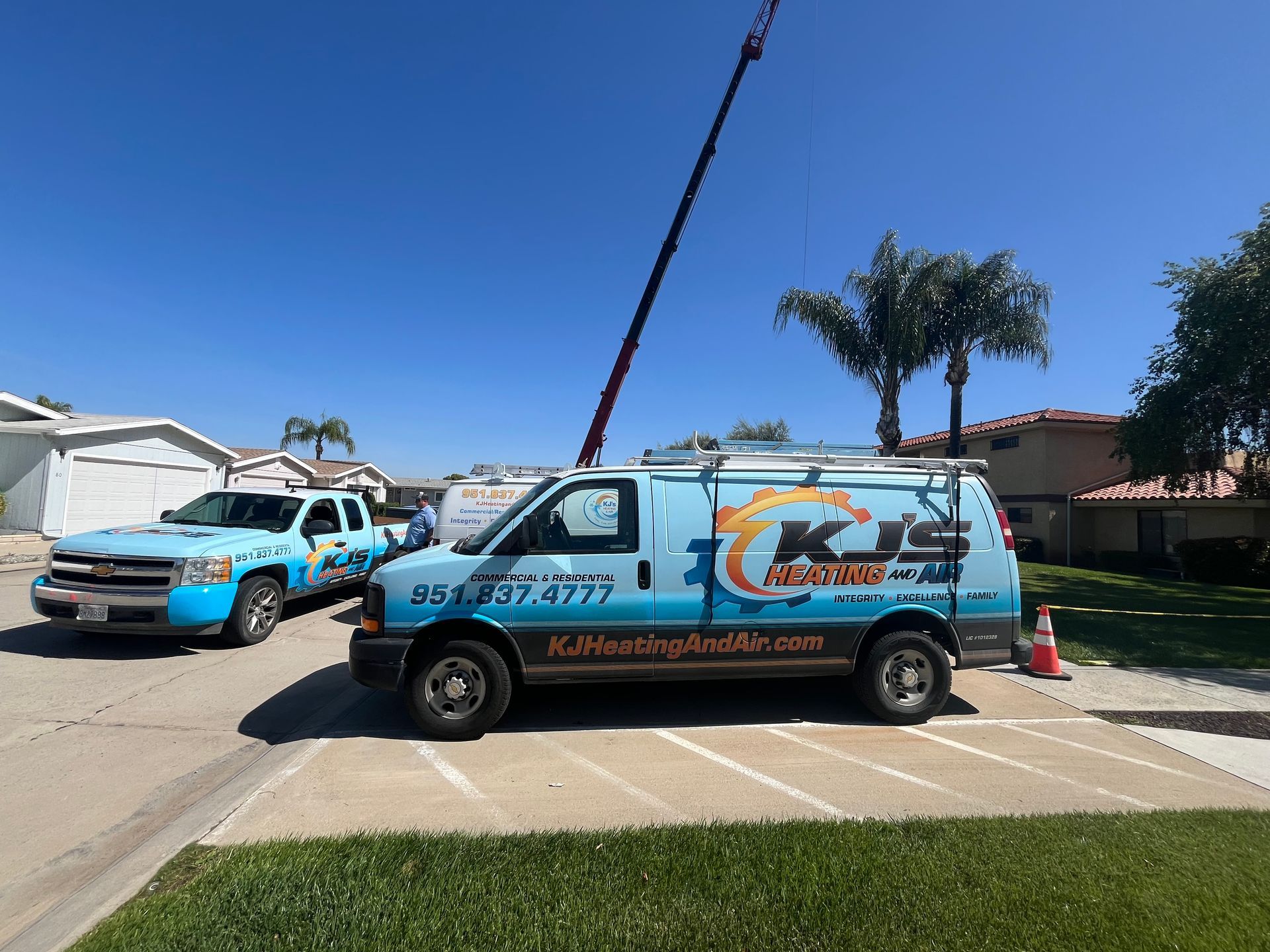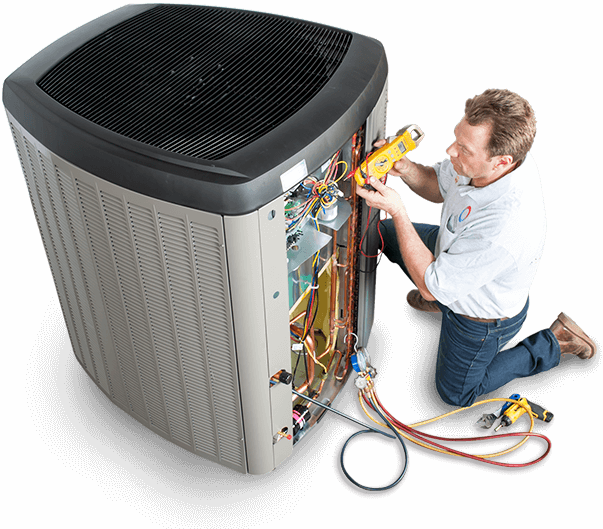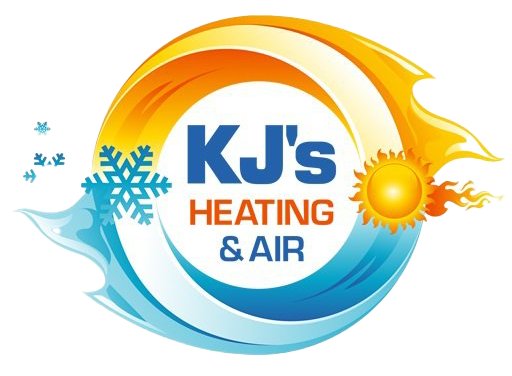Main Components of an HVAC System: The Complete Guide for Homeowners
What Are the Parts of an HVAC System?

A modern HVAC system comprises several interdependent HVAC components that manage indoor temperature, air quality, and humidity. Whether you're using a heat pump, central air system, or a ductless unit, the parts of an HVAC system function as a whole to provide comfort year-round.
This guide breaks down the parts of the HVAC system, explains how they work, and shares practical advice on maintenance and safety—ideal for homeowners, renters, and property managers alike.
HVAC System Components & Their Functions
1. Thermostat – The System’s Brain

The thermostat is the brain of the system, signaling your HVAC when to activate. While
smart thermostats offer advanced features like automation and geofencing, there are also
manual and
programmable options.
- Manual thermostats: Simple and inexpensive but lack automation.
- Programmable thermostats: Allow pre-set temperature adjustments for different times.
- Smart thermostats: Offer remote control, learning behavior, and energy savings.
2. Furnace / Heat Pump – The Heating Core
Furnaces use gas, electricity, or oil to heat air, while heat pumps move heat rather than generate it. Heat pumps are energy-efficient and serve as both heating and cooling systems. These are central to residential HVAC system parts designed for all climates.
Heat Exchanger Alert: Furnaces contain a heat exchanger, which transfers heat safely. Cracks in the heat exchanger can leak carbon monoxide—a major health hazard. Annual inspections are essential.
Related read - Simple Fixes If Your Furnace Is Running But Not Heating

3. Evaporator Coil – Cooling Starts Here
Located near or inside the furnace, this coil contains refrigerant that absorbs indoor heat, beginning the cooling cycle. It’s one of the most critical components of the air conditioning system.
4. Air Handler & Blower Fan – Airflow Drivers
The air handler houses the blower fan, which pushes heated or cooled air through ductwork. Without these HVAC elements, the system would be unable to maintain airflow consistency.
5. Condenser Coil – Heat Release System

Located outside, the condenser coil releases absorbed heat into the environment. It works with the compressor and refrigerant to complete the cooling cycle.
6. Compressor – The System’s Engine
The compressor is often called the heart of the system. It circulates refrigerant between the indoor evaporator and outdoor condenser, managing pressure and heat exchange.
Refrigerant Cycle Explained:
In cooling mode, the refrigerant absorbs heat indoors and releases it outside. In heating mode (via heat pumps), the cycle reverses. These interactions define how HVAC components operate across seasons.
7. Expansion Valve – The Pressure Balancer
It regulates how much refrigerant enters the evaporator coil. Though small, it's one of the essential parts of HVAC systems that ensures balanced pressure and proper cooling.
8. Ductwork & Vents – The Distribution Network

Air travels through ducts to reach each room. Leaky or dirty ductwork reduces efficiency. These parts of a residential HVAC system are often neglected but vital to comfort and energy costs.
To know more - The Importance of a Proper Ventilation System in Your Home
9. Air Filters – The Air Quality Protectors
A seemingly small component, air filters prevent dust, allergens, and debris from circulating through your system. Clean filters extend the life of other HVAC system components and improve indoor air quality, especially crucial for families and those with allergies.
Optional Add-Ons: Enhancing Your HVAC System

Besides the basic parts of an HVAC, many systems include or can be upgraded with:
- Humidifiers/Dehumidifiers for ideal humidity levels
- Zoning Systems to control different areas independently
- UV Air Purifiers for better indoor air quality
- ERVs for fresh air without energy loss
Though not essential, these components of HVAC system setups can make a huge difference in both comfort and efficiency.
Types of HVAC Systems
Not all systems are built the same. Here's how different types of HVAC systems vary:
| System Type | Best For | Notes |
|---|---|---|
| Central AC | Whole-house cooling | Requires ductwork |
| Heat Pump | Year-round efficiency | Works in both heating and cooling modes |
| Furnace + AC | Versatile | Common in colder climates |
| Ductless Mini-Split | Zoned cooling/heating | No ductwork needed |
| Portable AC / Space Heaters | Temporary use | Ideal for small spaces or rentals |
| Boilers | Radiant heat | Uses water-based heat rather than air |
Component Location Tip:
- Furnace & Evaporator Coil: Usually indoors (attic, closet, or basement)
- Compressor & Condenser Coil: Always located outside
- Air Handler: Indoors, often combined with furnace or separate in mini-split systems
Maintenance Tips for Homeowners
Proper maintenance of HVAC system components keeps your system running smoothly:
Monthly:
- Check and replace air filters.
- Listen for strange noises during operation.
Seasonally:
- Clean leaves and debris around the outdoor condenser.
- Test thermostat functionality.
- Inspect ductwork for dust and leaks.
Annually:
- Schedule a professional tune-up.
- Clean evaporator and condenser coils.
- Test for carbon monoxide (especially with furnaces).
Keeping these HVAC components clean and functioning helps reduce energy bills and prevents unexpected breakdowns.
Related read - How often should HVAC be serviced?
Safety Considerations
Some HVAC system components can pose safety risks if not maintained:
- Cracked heat exchanger: Can leak carbon monoxide, a deadly gas.
- Refrigerant leaks: Harmful to the environment and may indicate compressor failure.
- Poor air filtration: Worsens allergies and asthma.
- Blocked vents or ducts: Reduce efficiency and may lead to overheating.
Installing CO detectors and scheduling regular inspections significantly lowers risk.
Where the Parts Work Together: System Interactions
The HVAC system functions like a well-orchestrated cycle:
- The thermostat triggers the furnace or compressor.
- The evaporator coil and condenser coil trade heat via refrigerant.
- The blower sends air through ducts and into your rooms.
- The filters ensure the air remains clean.
When all parts of an HVAC system are in sync, comfort and efficiency follow.
How to Troubleshoot Basic HVAC Issues
Before calling a technician, check:
- Thermostat batteries or settings
- Clogged filters
- Blocked vents or registers
- Outdoor unit obstructions (leaves, ice, debris)
- Circuit breaker status
These checks may resolve simple problems and keep your system operational until help arrives.
Conclusion
Whether you're a curious homeowner or someone planning a system upgrade, knowing the main components of an HVAC system gives you a clear advantage. These systems are more than just heating and cooling machines—they’re complex networks of mechanical and electrical parts working in harmony.
From the thermostat to the condenser coil, each piece plays a vital role in keeping your space comfortable. The better you understand the parts of an HVAC system, the more informed and confident you'll be in your home decisions.
And when you're ready to take the next step—whether it’s maintenance, repair, or a system upgrade— KJ Heating & Air is here to help. Our team understands HVAC systems inside and out and is committed to keeping your home comfortable all year round.
Frequently Asked Questions
What are the 5 main components of an HVAC system?
The core components are the thermostat, furnace or heat pump, evaporator coil, condenser coil, and ductwork.
What are the major parts of HVAC systems?
In addition to the main five, air handlers, compressors, expansion valves, and air filters are vital to system efficiency and comfort control.
What parts make up an air conditioning system?
An air conditioning system includes the evaporator coil, compressor, condenser coil, expansion valve, and blower fan.
How do I know if I need HVAC repair?
Watch for signs like inconsistent room temperatures, reduced airflow, unusual sounds, or rising energy costs.
Why is ductwork important in HVAC systems?
Ductwork is the delivery system for conditioned air. Leaks or blockages reduce efficiency and can lead to poor indoor air quality.
